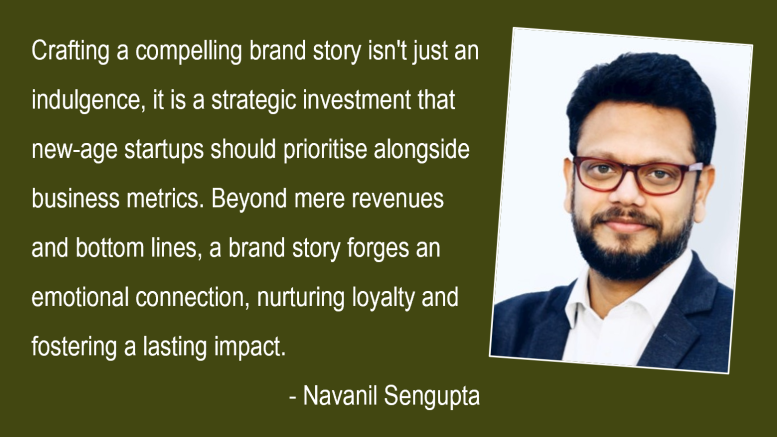In the bustling markets of India, where diversity and competition abound, brand building has emerged as a strategic art form, a hidden aspect of business that weaves stories of success. This narrative delves into the journeys of Indian brands that have masterfully built their businesses, transforming from local entities to household names.
In the heart of India’s corporate folklore, there are tales of brands that have not just sold products but have become integral parts of the cultural fabric. Let’s explore these stories to uncover the essence of successful brand building in the Indian context.
Take, for instance, Tata, a conglomerate that has become a symbol of trust and quality in India. The Tata Group, established by Jamsetji Tata in the late 19th century, has always positioned itself as a brand deeply rooted in Indian values while embracing global standards. From Tata Steel, which laid the foundation of industrial India, to Tata Consultancy Services (TCS), which put India on the global IT map, the brand has diversified yet maintained a consistent image of reliability and excellence. Tata’s journey illustrates how a brand can become synonymous with a nation’s growth and aspirations.
Another remarkable story is that of Amul, India’s beloved dairy brand. Its iconic branding, with the Amul Girl and witty taglines, resonated deeply with Indian consumers. Apart from being a large institution selling dairy products; it managed to be extremely relevant and value enriched to Indians for decades. This approach turned Amul into a brand that’s etched in the heart of every Indian. Ofcourse, the brand narratives on current affairs have almost attained a legendary status.
Reliance Industries, founded by Dhirubhai Ambani, is another powerhouse in the Indian branding saga. Starting as a small textile manufacturer, Reliance redefined itself multiple times, most recently venturing into telecommunications with Jio. Jio’s entry not only disrupted the telecom sector but also made digital connectivity accessible to the masses. Reliance’s brand strategy revolves around innovation, accessibility, and transforming the lives of its customers. This philosophy has made Reliance a household name across India.
In the world of Indian e-commerce, Flipkart stands as a testament to the power of brand building. Founded in 2007 by Sachin and Binny Bansal, Flipkart began by selling books online. Over the years, it expanded into various categories, competing with global giants. Flipkart’s brand building strategy, focusing on customer service, easy returns, and a user-friendly interface, made it a preferred choice among Indian consumers. This customer-centric approach helped Flipkart build a brand that’s trusted and loved.
Lastly, the story of Patanjali is unique in the Indian branding landscape. Founded by Baba Ramdev and Acharya Balkrishna, Patanjali rejuvenated the traditional Indian concept of Ayurveda. By offering a range of natural and affordable products, Patanjali created a niche for itself in a market dominated by international brands. Its branding strategy, emphasising purity and wellness rooted in Indian tradition, appealed to the health-conscious and patriotic sentiments of Indian consumers.
These Indian brands showcase the transformative power of effective brand building. Tata’s trust, Amul’s social connection, Reliance’s innovation, Flipkart’s customer focus, and Patanjali’s cultural resonance illustrate how brands can embody diverse narratives yet converge on the common ground of profound impact and success.
Crafting a compelling brand story isn’t just an indulgence, it is a strategic investment that new-age startups should prioritise alongside business metrics. Beyond mere revenues and bottom lines, a brand story forges an emotional connection, nurturing loyalty and fostering a lasting impact. In an era where authenticity and relatability matter, every brand including the startups must recognise that building a brand is not an extraneous expense; rather, it’s a key driver for long-term success. A brand story isn’t a mere accessory; it’s the essential factor that turns businesses into lasting influences, shaping not only transactions but also impacting the lifestyles of customers.
In the dynamic and diverse landscape of India, brand building is not just about marketing; it’s about creating stories that resonate with the ethos of a nation. Effective brand building can turn companies into cultural icons. These brands have not just built businesses; they have shaped lifestyles and influenced generations, proving that brand building, indeed, is a business in disguise.
The views and opinions published here belong to the author and do not necessarily reflect the views and opinions of the publisher.



Be the first to comment on "Brand Building: A Business in Disguise – India Chronicles"